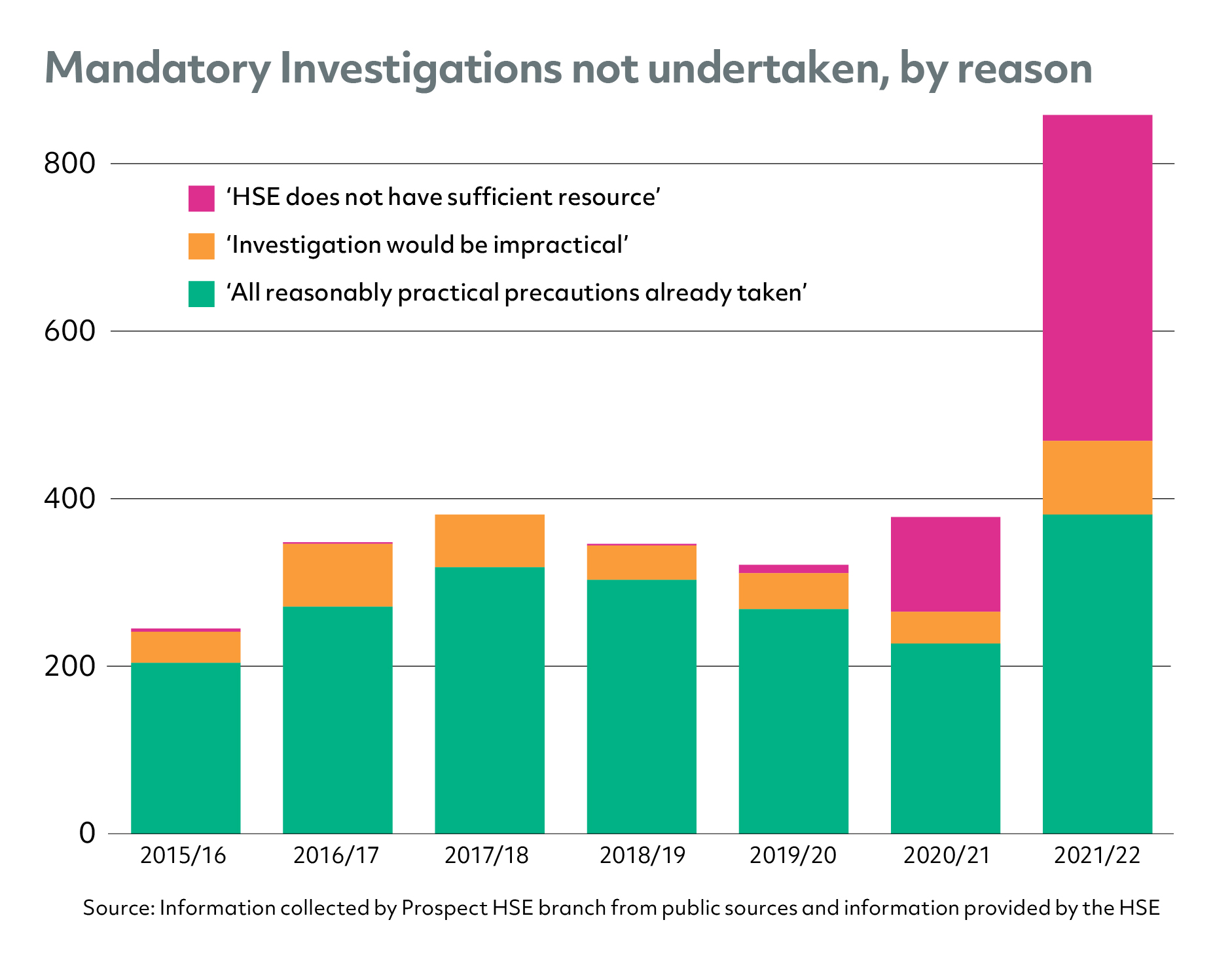200-fold increase in cancellations of HSE investigations due to resourcing
This news is more than a year old
The number of mandatory HSE investigations that weren’t carried out because of resourcing issues increased nearly 200-fold between 2016/17 and 2021/22.
This is shown in a new report from Prospect union, HSE under pressure: a perfect storm , which details the build-up of problems at HSE after years of underfunding, overwork and underpay.
The research, using HSE’s own figures, shows that in 2016/17 there were just two mandatory investigations cancelled because of insufficient resources; in 2021/22 the figure was 389.

Prospect argues that this is indicative of an overall reduction in capacity which is a direct result of a decade of reduced funding affecting recruitment, pay and morale.
Overall cash funding for HSE fell dramatically from £228m in 2010 to £126m in 2019. There has been a recovery since then to £185m in 2022. The long-term cash decline and overall significant real-terms funding decline (current funding is still 43% below 2010 once one-off ringfenced payments are taken into account) have left HSE with a staffing and skills crisis that will be difficult to overcome.

Mike Clancy, General Secretary of Prospect, said:
“The Covid pandemic really highlighted that if you want safe workplaces then you need to have an effective regulator in place with sufficient skills and capacity to inspect workplaces and hold employers to account. If appropriate levels of inspections and mandatory investigations are not happening, half of them because of a lack of resources, then that should worry anyone who values safety at work.
“The bottom line is that if effective investigations cannot be carried out then those who are at fault for an accident may get away with it, depriving victims of justice and making workplaces less safe.
“This is a problem that is mirrored across the public sector and in regulators in particular: Insufficient pay, too much work, and the loss of key skills to the better-paying private sector. It’s time for government to wake up – this is something that will only get worse unless they do something urgently.”
